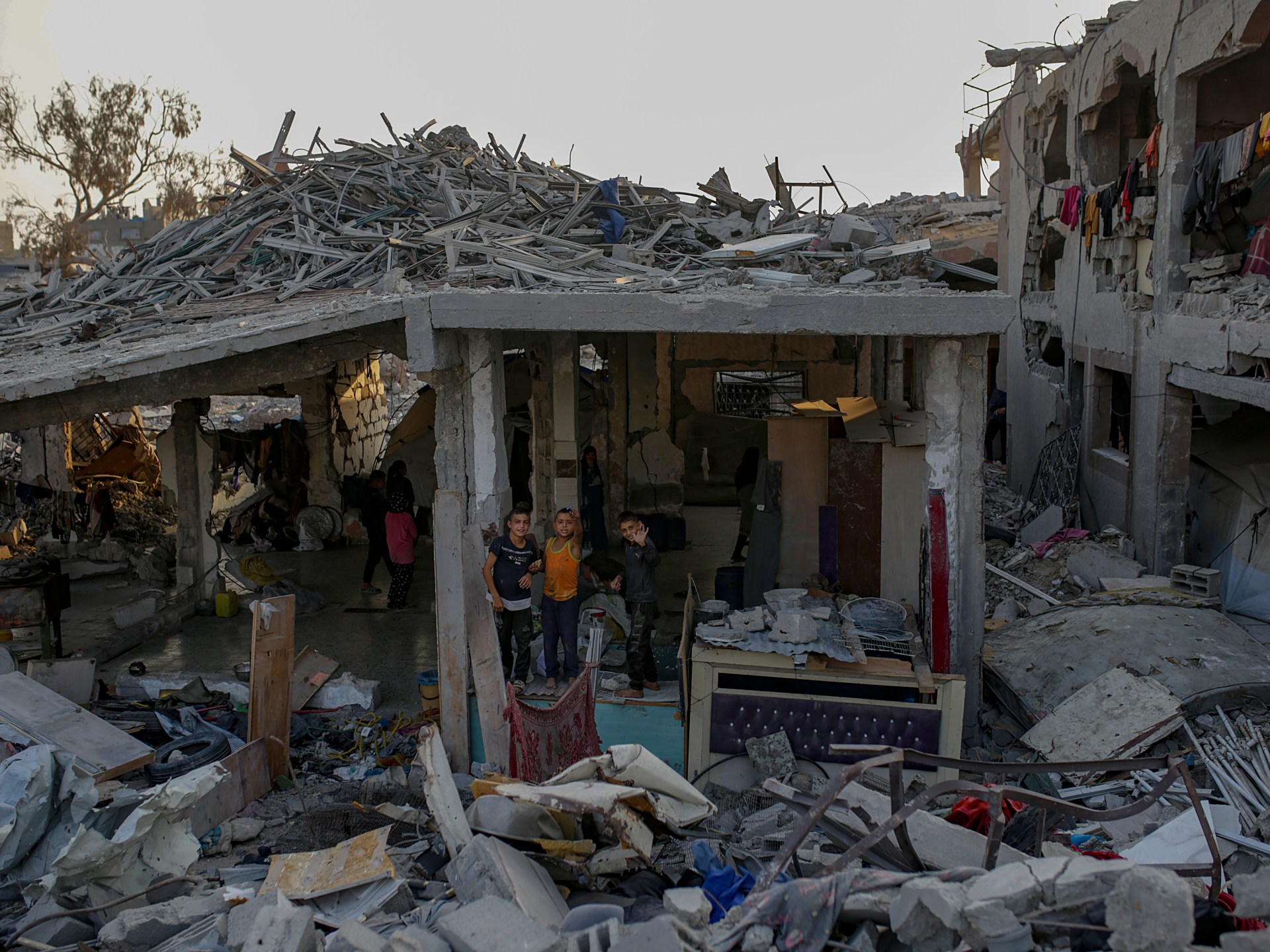Published On 5/11/2025
|
Last update: 12:36 (Mecca time)
Yesterday, Tuesday, Haaretz newspaper revealed a new Israeli measure that forced dozens of humanitarian organizations working in the Gaza Strip and the occupied West Bank to stop their activities.
The newspaper said that dozens of organizations that had previously obtained Israeli approval are now forced to stop their work due to a strict measure, keeping thousands of tons of food and relief equipment out of Gaza.
She explained that the measure tightens the conditions for organizations to enter Gaza and the West Bank, and requires them to provide details about their employees and their families, whether they are Palestinians or foreigners.
The new procedure was reinstated last March, after the registration of humanitarian organizations was transferred from the Ministry of Welfare to the Ministry of Diaspora headed by Amihai Shikli (from the Likud Party), according to the newspaper.

The role of the Ministry of Diaspora
The Ministry of Diaspora also now has broad authority to reject requests from organizations.
The newspaper indicated that the Ministry has the right to reject an organization if it is found that it denies the existence of Israel as a Jewish and democratic state or works to delegitimize Israel, according to its description.
There is an additional reason for refusing to grant a permit to a humanitarian organization, which is its support for “the trial of Israelis in a foreign country or before an international court,” in reference to their crimes committed during the war of extermination in Gaza.
An organization may also be rejected if one of its employees published, during the seven years preceding the registration application, a public call to boycott Israel, according to the newspaper.
Reject requests
Since the beginning of last September, the Israeli Ministry of Diaspora announced its rejection of 14 applications out of 100 submitted by organizations, while the remaining applications are still under examination.
Some of the approved organizations were working with the so-called Gaza Humanitarian Foundation, an organization created by Israel and the United States last May and whose operations ceased last October.
The newspaper said that without official registration, humanitarian organizations are not allowed to bring food or any aid into Gaza, and their employees cannot obtain entry visas to Israel, which are required to work inside Israel or the occupied West Bank.
The lack of permits also makes it difficult for these organizations to enter or leave Gaza, and they are also prohibited from purchasing or transporting equipment through Israel.
Among the organizations that have been waiting for months to receive an official response are some of the largest institutions in the world, such as: Oxfam, Save the Children, and the Norwegian Refugee Council, according to Haaretz.
She added that the organizations doubt their ability to pass the Israeli registration process, as many of them refused to provide lists of the names of their Palestinian and foreign workers.
These organizations say that transferring the information may violate privacy and other laws in their home countries, according to the newspaper.
Stuck aid
The newspaper explained that in recent weeks, Israel has made it difficult for organizations to bring food and equipment into Gaza via alternative routes.
It also revealed that organizations that did not obtain a permit to enter goods into Gaza resorted to United Nations agencies, or other organizations that had a permit, and asked them to enter the purchased goods, but Israel also prevented this step.
As a result, a large number of equipment and supplies have been stranded in Israel, Jordan, Egypt, and the West Bank, such as beds, tents, plastic sheeting, desalination equipment, insulation materials, winter clothing and personal hygiene supplies, and large quantities of food.
Collective punishment
Haaretz quoted Oxfam’s policy director in the Palestinian territories, Bushra Al-Khalidi, as saying that this measure is part of a broader Israeli policy that represents collective punishment that makes Gaza an uninhabitable place.
Since the ceasefire agreement entered into force on October 10, according to US President Donald Trump’s plan, Israel has continued to violate it, whether by carrying out attacks or preventing the entry of humanitarian aid in agreed upon quantities.
According to government statistics, the average number of trucks that have entered since the beginning of the agreement does not exceed 89 trucks per day, out of 600 trucks that are supposed to enter each day to provide the minimum basic needs of the Palestinians.

